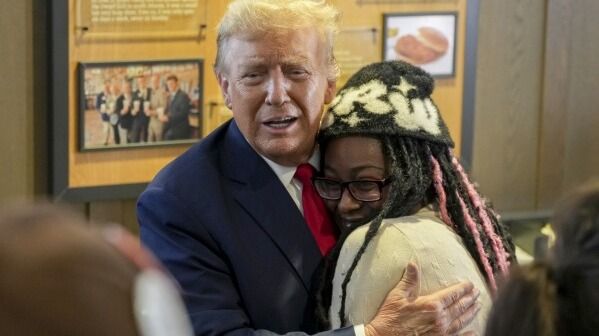Former President Donald J. Trump, known for his sweeping policy proposals, has made headlines once again by pledging to make in vitro fertilization (I.V.F.) treatment free for all Americans who need it. During a campaign rally in Potterville, Michigan, on Thursday, Trump declared that under his administration, the government or insurance companies would be required to cover all costs associated with I.V.F.
“Under the Trump administration, your government will pay, or your insurance company will be mandated to pay for all costs associated with I.V.F. treatment,” Trump told a cheering crowd, highlighting a policy that could significantly impact millions of Americans struggling with infertility.
Here is what you need to know
I.V.F., a process in which an egg is fertilized by sperm outside the body and then implanted into the uterus, can be prohibitively expensive, often costing tens of thousands of dollars per cycle. The high cost has made it out of reach for many couples, despite its growing necessity as a fertility treatment. Trump’s proposal, however, raises several complex challenges regarding its implementation.
Experts warn that requiring insurance companies to cover I.V.F. could be difficult without new legislation. According to a report from New York Times, Alina Salganicoff, director of the women’s health policy program at KFF, a health research nonprofit, noted, “The president cannot do this on his own. You need to have federal funds to do this. Congress needs to appropriate money.”
Forcing insurers to cover I.V.F. would likely require new laws passed by Congress or the addition of I.V.F. to the list of free preventive women’s health services under the Affordable Care Act (ACA). Ironically, Trump had previously attempted to repeal the ACA during his presidency, making this a particularly striking turn in his policy stance.
Alternatively, having the government directly pay for I.V.F. treatments would essentially create a single-payer healthcare system for this specific condition, an approach that would necessitate new federal funding and oversight. Establishing such a program would require Congress to allocate funds and create a new division within the federal government to manage the initiative.
A quick look at the political context
Trump’s announcement comes on the heels of a significant legal ruling in Alabama. In February, the Alabama Supreme Court declared that embryos are “unborn children,” a decision that led several fertility clinics in the state to halt operations. Trump quickly responded by urging the Alabama Legislature to pass legislation protecting I.V.F. treatments, which it eventually did, allowing clinics to resume services.
The issue of I.V.F. has since become a hot topic on the campaign trail, with Democrats advocating for policies to safeguard access to fertility treatments. Many Democratic candidates have shared personal stories of infertility, rallying support for their cause. Meanwhile, Republicans face internal divisions on the issue, with many voters supporting the legality of I.V.F. while Christian conservatives oppose it due to the potential destruction of unused embryos.
Trump’s proposal adds another layer to the already complex debate surrounding I.V.F. access and regulation. While the idea of free I.V.F. is likely to resonate with many Americans struggling with infertility, the challenges of making it a reality are substantial. The proposal will require navigating the intricate balance of healthcare policy, legislative action, and public opinion.
As the 2024 campaign season heats up, Trump’s bold promise is sure to spark further discussion and debate, both within his party and across the political spectrum. Whether this proposal will gain traction or face insurmountable obstacles remains to be seen.
Trump Vows to Make I.V.F. Free Nationwide if Re-elected world-news World News | Latest International News | Global World News | World News Today




